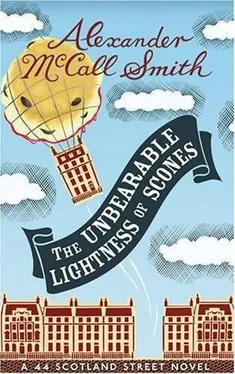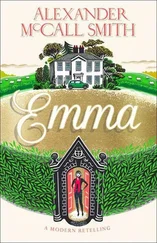Alexander Smith - Unbearable Lightness of Scones
Здесь есть возможность читать онлайн «Alexander Smith - Unbearable Lightness of Scones» весь текст электронной книги совершенно бесплатно (целиком полную версию без сокращений). В некоторых случаях можно слушать аудио, скачать через торрент в формате fb2 и присутствует краткое содержание. Жанр: Триллер, на английском языке. Описание произведения, (предисловие) а так же отзывы посетителей доступны на портале библиотеки ЛибКат.
- Название:Unbearable Lightness of Scones
- Автор:
- Жанр:
- Год:неизвестен
- ISBN:нет данных
- Рейтинг книги:4 / 5. Голосов: 1
-
Избранное:Добавить в избранное
- Отзывы:
-
Ваша оценка:
- 80
- 1
- 2
- 3
- 4
- 5
Unbearable Lightness of Scones: краткое содержание, описание и аннотация
Предлагаем к чтению аннотацию, описание, краткое содержание или предисловие (зависит от того, что написал сам автор книги «Unbearable Lightness of Scones»). Если вы не нашли необходимую информацию о книге — напишите в комментариях, мы постараемся отыскать её.
Unbearable Lightness of Scones — читать онлайн бесплатно полную книгу (весь текст) целиком
Ниже представлен текст книги, разбитый по страницам. Система сохранения места последней прочитанной страницы, позволяет с удобством читать онлайн бесплатно книгу «Unbearable Lightness of Scones», без необходимости каждый раз заново искать на чём Вы остановились. Поставьте закладку, и сможете в любой момент перейти на страницу, на которой закончили чтение.
Интервал:
Закладка:
Irene’s eyes narrowed. “That,” she said, “is the very last thing I had in mind. Interruptions in therapy are extremely counter-productive. We must try and arrange as smooth a transition as possible.”
“You mean…”
“Yes. Hugo is handing his practice on to a new therapist. A highly thought-of Australian, I gather. He’ll be fully briefed by Hugo. Bertie will be in safe hands.”
Stuart stood in silence, looking out of the window. He was remembering his conversation with Bertie in Dundas Street, the conversation in which the issue of joining the cub scouts had been raised. Did Irene know about this, he wondered; and, if not, should he raise it with her?
He turned away from the window to face Irene. “Perhaps we should ask Bertie what he wants,” he said. “He’s old enough now to have views.”
“I know very well what Bertie wants,” said Irene coldly. “I spend a lot of time with him, you know.”
Stuart was not sure if there was an element of censure in this last remark. Perhaps I am a failure as a father, he thought. But I don’t seem to get a look-in. She decides, all the time. I try, but she decides.
He took a deep breath. “So what does he want then?” he asked.
She had not heard him. “What?”
He repeated the question, louder now. “What does Bertie want? You said that you knew what his views were. Well, what does he want?”
Irene opened her hands; a gesture to be made when answering the obvious. “He wants to… He wants to learn Italian. He wants to go to yoga. And I suspect that underneath it all he enjoys his psychotherapy sessions. And, oh, he wants to have a train set. Which he’ll get one of these days.”
“No,” said Stuart. “He does not like learning Italian. He hates yoga. And he endures psychotherapy because he has no alternative.”
Irene looked down at the floor. This would pass. But Stuart was warming to his theme now. “And as for what he actually wants to do,” he went on, “Bertie confided in me that he wants to join the cub scouts.”
Irene gave a cry of triumph. “Oh, I know all about that,” she said. “That came up this afternoon. Our little friend Tofu announced over tea that he wanted Bertie to join a club with him. So I asked what it was and was told that it was the Young Liberal Democrats! Can you believe it? So a bit of probing and the whole thing collapsed and it emerged it was some cub scout pack in Morningside and that the Young Liberal Democrats was Tofu’s idea of what I might approve of. Isn’t that rich?”
As Stuart listened, he felt his sorrow grow. Sorrow. Sorrow that the boys had felt they had to come up with such a ridiculous invention. Sorrow that Irene could not see what was so obvious.
“But he must join,” he said. “It’s a wonderful organisation. It’s exactly what he needs.”
Irene raised an eyebrow. “The matter’s closed,” she said. “I’m not having Bertie joining any paramilitary organisations. And I’ve told him that.”
Stuart let out an involuntary gasp. “Paramilitary organisation? Are you aware… even vaguely aware of what scouting is all about?”
“Self-confessed male bonding,” Irene snapped. “Reinforcement of primitive male rituals. It starts with the cub scouts and ends with… ends with Muirfield Golf Club. Is that what you want for our son, Stuart? Is it?”
Stuart said nothing. For a moment he looked at Irene in blank amazement, and then he walked smartly to the kitchen door and called down the hall. “Bertie! Come along here, my boy. I want to talk to you about the cub scouts and when we can get you started.”
“Stuart!”
“Shut your face.”
39. The Teacup Storm Revisited
Domenica Macdonald had always been a believer in good-neighbourliness. Having spent her early years in the same Scotland Street flat in which she now lived, she understood the ethos which underlay the communal life of a Scottish tenement: you did your duty by those who lived on the same stair – you washed the steps according to the rota, you cut the green when it needed cutting (and you took on the turn of anybody who was ill or infirm), and you avoided arguments with your fellow residents. It was, she reflected, very much the same code of communal living that applied in any society in any country, and perhaps the most universal and the most important part of it was this: don’t pick fights.
Forty-four Scotland Street had always been at the equable end of the spectrum when it came to neighbourly relations. Domenica had her views on the Pollock family downstairs – she found Irene almost too ridiculous to be true – but there had never been any open hostility between them. With the two young men on the ground floor she got on perfectly well, although they kept very much to themselves; and as for the flat in the basement – that was something of a mystery: it belonged to an accountant in Dundee who used it occasionally when he came to Edinburgh on business, but he was never seen by anybody.
It was natural that Domenica should have more contact with the other flat on her landing, the flat currently owned by Antonia Collie. When Bruce had owned that flat, Domenica had enjoyed cordial relations with him, even though she had immediately and correctly identified him as, in her words, an eighty-four horse-power narcissist. She had liked Pat, Bruce’s flat-mate, and had sympathised with her when the young student found herself falling for her well-coiffed landlord. Indeed, Pat had become a good friend, in spite of the forty years that separated them in age, and she missed her now that she had gone back to live with her parents in the Grange. It was only the other side of town, not much more than forty minutes’ walk away, and yet it was not a friendship that would survive geographical separation. And naturally so; Pat had a circle of her own age – and now that Matthew was married she would be less in evidence in Dundas Street, where she had worked closely with Matthew at his gallery.
When Antonia had moved in, Domenica had imagined that they would see a great deal of one another, but it had not worked out. Antonia had changed since the days when they were close; she seemed preoccupied with her novel about the early Scottish saints and her conversation often turned on the subject of men, the very topic where Domenica felt Antonia’s judgment was weakest.
But what had caused the biggest rift in the relationship, at least from Domenica’s point of view, was the matter of the blue Spode teacup that Antonia had stolen – there was no other word to describe it – from Domenica when she had flat-sat for her and that was now somewhere in Antonia’s kitchen, along with heaven knew how much other stolen crockery. After all, one who stole a teacup from a neighbour would surely not be above stealing crockery from all sorts of places – including Jenners tea room and the North British Hotel (currently demotically known as the Balmoral Hotel).
Now, however, a heaven-sent opportunity had arisen to set right this gross wrong. It had arisen because Antonia had asked Domenica if she would be in to receive a delivery that she was expecting the following morning.
“These people are hopeless,” said Antonia. She used the expression “these people” to refer to anybody of whom she disapproved. “These people are bad losers,” she had said of some politicians after they had been defeated in the Scottish parliamentary elections. And then she had said, “These people certainly like their whisky,” pointing to a picture of a political party conference in Aviemore. It was a useful expression, which she was now using in relation to a firm of deliverers who refused to disclose when they would deliver a new armchair that she had ordered from a furniture catalogue.
Читать дальшеИнтервал:
Закладка:
Похожие книги на «Unbearable Lightness of Scones»
Представляем Вашему вниманию похожие книги на «Unbearable Lightness of Scones» списком для выбора. Мы отобрали схожую по названию и смыслу литературу в надежде предоставить читателям больше вариантов отыскать новые, интересные, ещё непрочитанные произведения.
Обсуждение, отзывы о книге «Unbearable Lightness of Scones» и просто собственные мнения читателей. Оставьте ваши комментарии, напишите, что Вы думаете о произведении, его смысле или главных героях. Укажите что конкретно понравилось, а что нет, и почему Вы так считаете.












